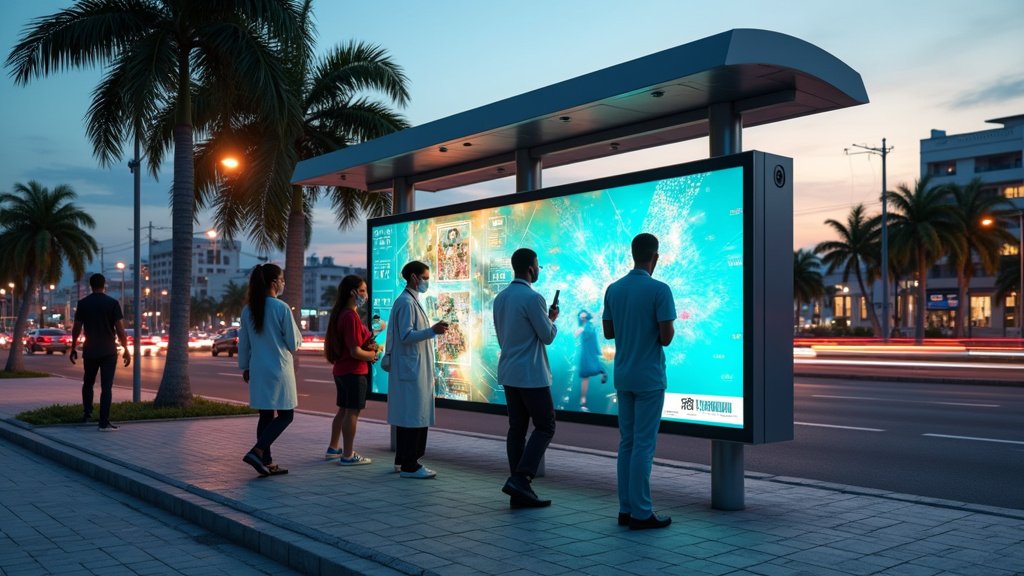Montego Bay, Jamaica – The bustling city of Montego Bay has taken a significant stride into the future of urban development with the groundbreaking ceremony for the nation’s first smart bus stop. On Tuesday, August 19, 2025, in Mount Salem, a project valued at approximately $4.7 million commenced, marking a pivotal moment in the St. James Municipal Corporation’s 2025–2026 development plan and setting a new precedent for public transportation across the island. This initiative, part of a wider push for technological enhancement and urban renewal, is expected to be completed within six weeks.
A Hub of Connectivity and Safety
The innovative facility promises a suite of modern amenities designed to enhance the daily commute for thousands of residents and visitors alike. At its core, the smart bus stop will offer high-speed internet and free Wi-Fi, transforming waiting times into productive or leisure moments. Commuters will benefit from QR code technology, enabling direct connection with registered taxi associations and providing real-time information on transit availability, thus streamlining the travel experience and reducing wait times.
Safety and security are paramount to the design. The new facility will integrate digital advertising boards and security cameras equipped with real-time access for local police monitoring, offering an unprecedented level of oversight and deterrence against crime. Complementing this, improved lighting will ensure enhanced visibility and safety, particularly during night hours, addressing longstanding concerns in the area.
Collaborative Vision for a Smarter Community
This transformative project is a testament to strong public-private partnerships. The St. James Municipal Corporation is spearheading the initiative, with vital support from telecommunications giant Digicel. Digicel’s involvement is key, as the firm is extending its fibre optics rollout, branded ‘Digicel Plus,’ to areas including Mount Salem, ensuring the robust connectivity required for the smart bus stop’s advanced features.
Montego Bay’s Mayor, Councillor Richard Vernon, emphasized that this project is far more than just a bus stop. “It is a complete transformation of a space that has been misused for a very long time,” Mayor Vernon stated during the groundbreaking ceremony. He highlighted the initiative’s role in restoring the area’s aesthetics, improving accommodation, and ultimately contributing to the vision of a sustainable and smart city. This aligns with the city’s broader ‘MoBay Step-Up’ (Striving Towards Environmental Protection and Urban Preservation) programme, which encompasses ongoing upgrades like sidewalk improvements and infrastructure enhancements across Montego Bay.
Impact and Future Implications
The strategic location of the smart bus stop, at the entrance to the heavily trafficked Cornwall Regional Hospital (CRH), underscores its significant community impact. It is expected to benefit approximately 2,000 individuals daily, including hospital staff, patients, and visitors from CRH and the upcoming Western Children and Adolescent Hospital. Custos Rotulorum for St. James, Bishop Conrad Pitkin, hailed the development as both special and historic, noting its profound service to the people of St. James and the wider western region.
Senior Superintendent Eron Samuels, Commanding Officer for the St. James Police Division, reiterated the commitment of law enforcement to the project’s security aspects, even floating the idea of integrating police QR codes for essential news on wanted persons or safety tips. The Mayor also pointed out that the project aims to tackle the issue of unregulated, ‘satellite’ taxi stands that have long been a nuisance in the city.
This pioneering smart bus stop signals Jamaica’s dedication to modernizing its infrastructure and enhancing the quality of life for its citizens. It reflects a national movement towards integrating technology into public services, following other ‘smart’ initiatives such as smart school buses and smart police stations. As Montego Bay continues its journey towards becoming a leading smart and sustainable city in the Caribbean, this project serves as a concrete example of inclusive, scalable, and adaptable development, paving the way for future technological advancements in public spaces across the island.

